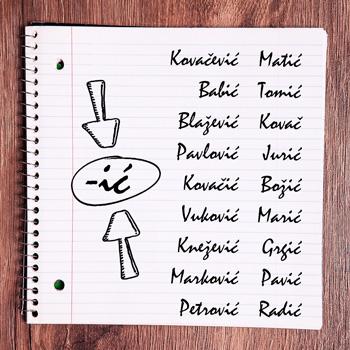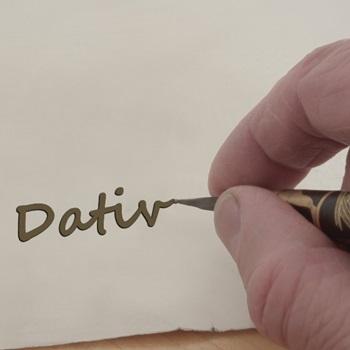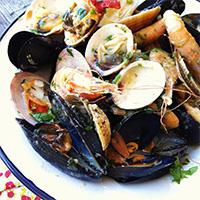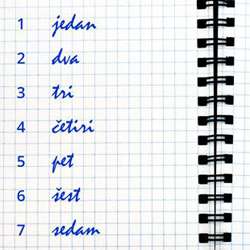Forming surnames in this way was a traditional practice in many languages. The suffix –ić is typical in several other south Slavic languages (e,g, Serbian, Bosnian, Montenegrin) and is roughly equivalent to the Scandinavian –sen, (Danish, Norwegian) or –sson (Swedish, Icelandic).
Father's first name (patronymic surnames)
As mentioned above, most Croatian surnames are patronymic, i.e. derived from the first name of the child's father. Here are a few common examples:
Antić
– child of Ante
Filipović
– child of Filip
Jurić
– child of Jure
Stjepanić
– child of Stjepan
Mother's first name (matronymic surnames)
Matronymic surnames, albeit far less frequent, also exist in Croatian.
Women who their offspring were named after were either women who were particularly appreciated in a community or were “marked” by some more or less fortunate events, such as becoming pregnant out-of-wedlock or becoming a widow at an early age.
Anić
– child of Ana
Babić
– child of a baba (Slavic for an old woman)
Marušić
– child of Marija
Zorić
– child of Zora
Professions
Surnames are sometimes also constructed from the parents' profession:
Ribar
– fisherman Ribarević – child of a fisherman
Kovač
– blacksmith Kovač,Kovačević, Kovačić – child of a blacksmith
Mornar
– sailor Mornar, Mornarić – child of a sailor
Vitez
– knight Vitez, Vitezić – child of a knight
The most frequent Croatian surnames
Here’s the list of the 20 most frequent Croatian surnames, according to several sources:
Some facts on Horvat, the most popular Croatian surname!
Horvat, the most frequent surname in Croatia, doesn’t end in –ić, but is common for a different reason: the name Horvat comes from the Croatian word Hrvat (Croat).
It was estimated that of 4.3 million Croatians more than 22,000 have the last name Horvat (according to the 2011 census). Related surnames such as Horvatinčić or Horvatić – i.e. “son of Horvat” are also not uncommon.






